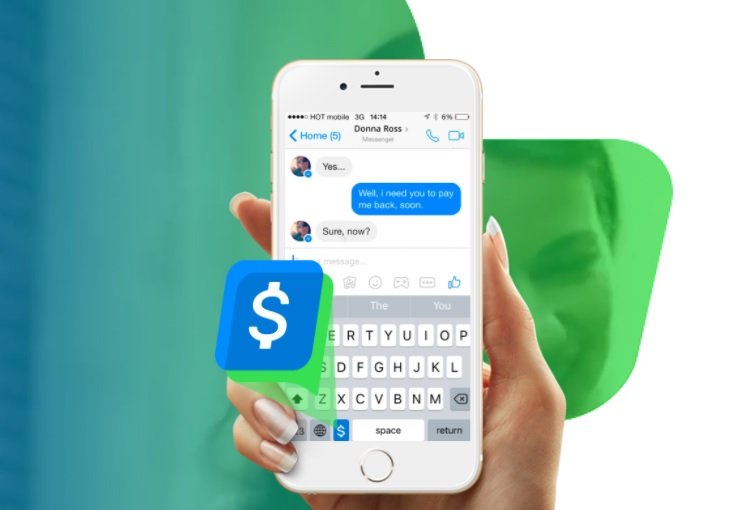“Cash rules everything around me,” American hip-hop band Wu-Tang Clan famously sang back in 1993.
And while their song, C.R.E.A.M, remains a timeless hit today, their message has become antiquated in the age of online payments as companies, notably Israel’s Payoneer, have revolutionized the way we exchange money.
The rise of e-commerce
The global e-commerce industry has been booming for at least a decade and is expected to exceed $4 trillion in sales by 2020, constituting 14.6 percent of all consumer spending, with a 50 percent growth over five years, according to a 2016 report by eMarketer. And as mobile-commerce, or m-commerce, is expected to reach $284 billion, or 45 percent of the total US e-commerce market, by 2020, according to Business Insider Intelligence, it should come as no surprise that online payment platforms are emerging as one of the fastest-growing fields in that industry, covering a wide range of innovative technologies.
The industry ranges from mobile payment platforms such as digital wallets and social P2P platforms to cryptocurrencies such as Bitcoin, and biometrics such as fingerprint payments.

An illustrative photo of a credit card on a laptop. Photo by Jorge Franganillo on Flickr
Oren Levy, CEO and co-founder of Israeli payment platform provider, Zooz, says there are several reasons for an upward trend in the use of online payments. First, it’s market-driven, he tells NoCamels, with companies “trying to cater for the market needs,” as millenials and younger generations prefer to shop online. Second, the technology is constantly evolving, driving up competition, and the third reason is the support from banks, whom he says, have shown an openness to technology” and have helped create a “welcoming atmosphere for such innovation in the world of payments.”
Ron Stern, the head of portfolio management at crowd-investing platform, OurCrowd, offers another reason: advances in cybersecurity, a field in which Israel is a world leader. Israel has already achieved success in cybersecurity has enabled it to get ahead in the world of online payments, where online security is paramount, he says.
“I think because Israel is so deeply entrenched in online security, that lends itself very naturally also to grow to online payment,” he tells NoCamels.
Of course, leaders in the field exist globally — such as with PayPal, Stripe, and Square — but Israel too has seen immense and impressive growth in this industry.
Israeli FinTech
According to the Israeli FinTech hub, The Floor, there are more than 500 FinTech startups in Israel with accumulative fundraising of more than $650 million. Of the businesses that focus on online payments, companies such as Paykey, Zooz, Payoneer, and BioCatch have established themselves as frontrunners as they address unchartered territories in the industry. While they all lead the sector, they focus on different subdomains within the payment process.
“If I were to look at the world of online payment, there is a pay-in and a pay-out,” Levy tells NoCamels. “Pay-out are companies like Payoneer, which do a phenomenal job in the Israeli market for online payment. They are basically committing money from one business to another, or from one business to its customers. And, there is a pay-in. Which is basically what Zooz does, which is an online payment platform technology provider.”
Sign up for our free weekly newsletter
SubscribeIsraeli Leaders in Online Payments
Founded in 2010, the Raanana-based Zooz provides a single platform for payments that enables merchants to connect with multiple technologies and payment providers. As a pay-in provider, Zooz focuses on helping businesses accept money from customers, essentially acting as a routing platform. “It is sort of a cooperation where we are collaborating with [payment providers], we are building connections to them, but at the same time we enable our customers to connect with more than one [provider],” Levy says. To date, Zooz has raised some $40 million, operating mostly in Israel, Europe, and the US, with high-profile clients ranging from Gett Taxi to Burberry Luxury Brand.
Payoneer, founded in 2005 by Yuval Tal, has established itself as a leading pay-out service provider, winning numerous international awards since it entered the market. The company, with a large New York operation, boasts of its ability to “enable millions of businesses and professionals from more than 200 countries, to grow globally by facilitating seamless, cross-border payments.” Payoneer says that with its “fast, flexible, secure and low-cost solutions, businesses and professionals in both developed and emerging markets can now pay and get paid globally, as easily as they do locally.” The company has raised more than $270 million, assisting companies such as Google, Airbnb, and Getty Images in their pay-out services.

A Payoneer booth at the Tech in Asia conference in Singapore in 2015. Tech in Asia via Flickr
PayKey, a Tel Aviv-based FinTech startup established in 2014, aims to differentiate itself from the pack by focusing exclusively on mobile, integrating its patent-pending Mobile Banking Keyboard to banking apps and letting bank customers transfer funds using popular social media and messenger networks such as Facebook, Twitter and WhatsApp. And while Facebook unveiled a person-to-person payment (P2P) system within Messenger in 2015 and later expanded to group payments, Paykey lets users complete a range of financial services “including P2P payments, chatbot engagement, balance check, cardless withdrawal, and more, from within any mobile application.” Paykey, founded by its current CEO Daniel Peled and CTO Offer Markovich, has raised over $16 million in three years. Peled told Globes this June after the latest financing round, that in 2017, the company has had “unprecedented global interest from financial institutions and investors in our solution, which is now available through Westpac in Australia, Garanti Bank in Turkey, Davivienda in Colombia and Sparebank 1 in Norway, proving our ability to lead in the emerging social banking space.”

A screenshot of the PayKey keyboard in use
Unsurprisingly, behind every form of technology is a process that requires the secure transfer of information and this is where BioCatch comes in, offering the payment industry biometric security features. The award-winning company uses more than 500 metrics to authenticate user behavior. Stern, from OurCrowd, and a member of the Board of Directors at BioCatch, tells NoCamels that users behave a bit differently each time they access a website, whether how they type in a password, move their mouse or bang on the keyboard. “BioCatch captures all of that and provides leading financial institutions with behavioral biometric profiles of online users to recognize fraudsters, malware, remote access Trojans (RATs) and other cybersecurity threats,” Stern says. Since its founding in 2011, BioCatch has raised $11.6 million and in June, was granted its 23rd patent which specifically detects for remote access.
Benefits And Hurdles
While the benefits of the online payment industry are clear — ease, convenience, lower barriers of entry, allowing more businesses to sell their products — it still faces major challenges in security and standardization.
Stern warns that “a lot of criminals are moving to the online space and we are going to have a lot more identity theft, hijacking, and credit card theft. I think all of those hackings are going to increase exponentially and I don’t think law enforcement is currently equipped to deal with that avalanche…The world is going to spend at least a decade figuring out how to secure hundreds of billions to trillions of dollars on online payments each year.”
In terms of standardization, Levy says that every country has different legal, banking, identification, and licensing requirements challenging payment providers. But he remains optimistic, offering that it will “enable a lot more cross-border business.”
Soon, we may all be singing the (albeit less-catchy) “online payment platforms rule everything around me” without a second thought.
Related posts

Editors’ & Readers’ Choice: 10 Favorite NoCamels Articles

Forward Facing: What Does The Future Hold For Israeli High-Tech?

Impact Innovation: Israeli Startups That Could Shape Our Future




Facebook comments